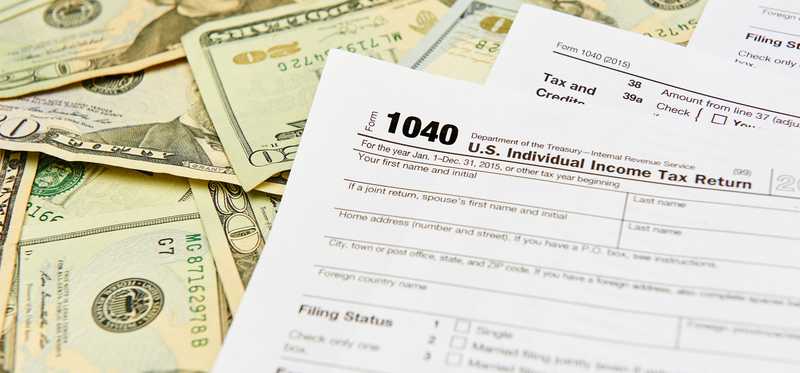17 Things You Need to Know Before Claiming Social Security

17 Things You Need to Know Before Claiming Social Security
How’s your Social Security knowledge?
Social Security is by far the largest retirement program in the United States, with more than 62 million Americans receiving monthly Social Security benefits in 2017.
Unfortunately, there are many aspects of Social Security that aren’t well-understood by a number of Americans, especially those who haven’t yet claimed their retirement benefits. With that in mind, here are 17 things American workers need to know before they claim Social Security.
ALSO READ: The 2 Most Popular Ages for Claiming Social Security
Previous
Next

Do you qualify for benefits?
To qualify for Social Security benefits, you’ll need at least 40 Social Security “credits” by the time you apply.
This isn’t as difficult as it may sound. One Social Security credit represents $1,320 in earnings in 2018, and you can earn a maximum of four credits per year. So, if you’ve earned the 2018 equivalent of $5,280 in at least 10 calendar years, you qualify for Social Security retirement benefits. As you can imagine, most workers easily exceed that threshold by the time they reach retirement age.
The best way to determine if you qualify is to create a mySocialSecurity account at www.ssa.gov if you haven’t already done so. If you do this, you can view your latest Social Security statement, which among other things, tells you if you are eligible for a retirement benefit based on your own work record.
Previous
Next

Even if you didn’t work, you may be eligible
If you didn’t work enough to qualify for a Social Security benefit based on your own work record, but your spouse did, you may be eligible to collect a spousal retirement benefit.
The short explanation of spousal benefits is that qualified individuals could get as much as half of the higher-earning spouse’s full retirement benefit.
A few conditions apply. Before you can collect a spousal benefit, your spouse must already be collecting their own retirement benefit. And, your spousal benefit can be reduced if you claim it before you reach your own full retirement age.
Previous
Next

How to apply for Social Security
Like most things these days, the easiest way to apply for Social Security retirement benefits is online. Doing so should take you about 15 minutes, and in most cases there are no further documentation requirements.
Alternatively, you can apply for Social Security over the phone, or in person at your nearest Social Security office if you’re more comfortable doing it that way. If you decide to use the in-person method, It is highly suggested that you make an appointment to avoid lengthy wait times.
Previous
Next

Social Security benefits are paid in arrears
This is certainly useful to know when you first claim Social Security. Your retirement benefits are paid one month in arrears. In other words, if you apply to start your Social Security benefits in April, your first benefit payment will be made on May 1. Knowing this can help you determine your ideal claiming month, as you can decide to start Social Security on the month you need the income.
ALSO READ: The Strangest Social Security Benefit You Can Get
Previous
Next

How your base retirement benefit is calculated
Your base Social Security benefit is also known as your primary insurance amount or PIA and is the monthly benefit you’d be entitled to if you claim Social Security at exactly your full retirement age.
When determining your PIA, all of your lifetime Social Security-covered earnings are taken into account, up to the annual taxable maximum each year. Your annual earnings are then indexed for inflation, and the highest 35 years of earnings are considered, and are averaged together and divided by 12, to produce your average indexed monthly earnings, or AIME.
Your AIME is then plugged into a formula to determine your primary insurance amount. For 2018, the formula is:
- 90% of the first $895 of AIME
- 32% of the amount above $895 but less than
$5,397
- 15% of the amount over $5,397
Now, this is the 2018 formula. Your PIA will be based on the formula in effect when you turn 62, regardless of when you claim. However, the percentages don’t change, just the thresholds. And, if you claim Social Security after age 62, your PIA will be adjusted upward to compensate for annual cost-of-living increases.
Previous
Next

Your full retirement age
Your full retirement age for Social Security purposes depends on when you were born. If you were born in 1954 or earlier, your full retirement age is 66. If you were born in 1960 or later, your full retirement age is 67. And, if your birth year is somewhere in between those two, your full retirement age is somewhere in the middle. Specifically, here are the Social Security full retirement ages by birth year:
- 1954 or earlier -- 66 years
- 1955 -- 66 years, 2 months
- 1956 -- 66 years, 4 months
- 1957 -- 66 years, 6 months
- 1958 -- 66 years, 8 months
- 1959 -- 66 years, 10 months
- 1960 -- 67 years
Previous
Next

How your age affects your benefit
To be clear, you don’t have to wait until full retirement age to claim Social Security. As long as you’ve earned enough Social Security credits to qualify for benefits, you can start Social Security at any age between 62 and 70. However, the difference between your full retirement age and the age at which you claim Social Security determines how much your benefit is reduced or increased by.
Specifically, the SSA uses three age-based rules when adjusting your initial retirement benefit. If you claim Social Security early, your retirement benefit will be permanently reduced by 6.67% for each year you claim early, for up to three years before full retirement age. If you claim more than three years before your full retirement age, your benefit will be further reduced at a rate of 5% per year, as early as age 62.
Conversely, if you wait until after your full retirement age, your Social Security benefit will be permanently increased by 8% for every year you wait, until as late as age 70. All three of these percentages are prorated on a monthly basis. For example, if your full retirement age is 66 years and 10 months, but you claim Social Security at age 66, you’ll have 10 months’ worth of Social Security reduction applied to your benefit.
Previous
Next

Social Security isn’t broke
Social Security’s financial condition is too complex to explain in a couple of paragraphs, but it’s important to know the truth about one pervasive rumor -- that Social Security is “broke.”
This is not true at all. In fact, Social Security has about $2.9 trillion in reserves, as of the end of 2017. What’s more, the program actually ran a $44 billion surplus last year, so its reserves actually increased. The point is that if you hear that Social Security is broke, bankrupt, or any other term that means it’s out of money, don’t believe it.
ALSO READ: Most Americans Worry That Social Security Is Going Broke. Are They Right?
Previous
Next

…but it could run into financial trouble
While Social Security has nearly $3 trillion in reserves now, it’s not expected to last. In fact, the surplus I mentioned on the previous slide is expected to be the last one for the foreseeable future. Deficits are expected to begin this year and are expected to get larger and larger.
Here’s the problem. The generation that’s starting to reach retirement age now (the baby boomers), simply put, is a lot of people. Because of the size of this group, more people will be leaving the workforce, and therefore no longer paying Social Security tax, over the next two decades or so, than will be entering the workforce.
Additionally, life expectancies continue to get longer, so beneficiaries are collecting benefits for a greater number of years than ever before. These two facts are the basic reason why Social Security’s reserves are expected to dwindle in the coming years, eventually leading to the reserves being exhausted in 2034.
Previous
Next

Even if Social Security runs out of money, most benefits will still be paid
History tells us that something will be done to fix Social Security. This isn’t the first time Social Security has encountered a gloomy future outlook -- in fact, the last “fix” is why Social Security’s full retirement age is currently rising.
However, even if Congress never acts to fix Social Security and the program’s reserves are depleted in 2034 as expected, that doesn’t mean benefits will simply stop. There will still be payroll taxes flowing into the system, and these will be enough to pay more than three-fourths of Social Security benefits. So, as a worst-case scenario, we’re looking at an across-the-board 23% benefit cut in about 16 years.
Previous
Next

How can working affect your benefits?
If you’re planning to claim Social Security, but are still working, you need to know about the Social Security earnings test. In a nutshell, the earnings test says that if you earn more than certain thresholds, your Social Security benefits could potentially be reduced.
To be clear, the earnings test only applies if you haven’t yet reached full retirement age. If you have reached full retirement age, you can collect your full Social Security benefit regardless of how much you earn.
For 2018, the Social Security earnings test says that if you will reach full retirement age after 2018, $1 of your Social Security benefits will be withheld for every $2 you earn in excess of $17,040. And, if you will reach full retirement age during 2018, $1 of your benefits will be withheld for every $3 in earnings over $45,360. Only the months before your birthday month will be considered, so on a monthly basis this translates to an earnings threshold of $3,780.
Previous
Next

Your kids may be able to get benefits too
I already discussed that Social Security benefits can be paid to your spouse after you’ve started receiving your own retirement benefit, as long as they are at least 62.
However, you may be surprised to learn that if you have children, they could be able to receive benefits as well. In order for your children to be eligible to collect a Social Security benefit, they must be under 18, or between 18 and 19 if they are still in secondary school, or if they are 18 or disabled if their disability started before 22.
It’s important to point out that the total amount of money you can receive from Social Security is capped to 150%-180% of your full retirement benefit, so if you have several children for example, their benefits can be reduced proportionally, according to this maximum.
Previous
Next

Your Social Security retirement benefits may be taxable
Depending on how much income you have, some of your Social Security benefits may be taxable. The IRS uses an income metric called your combined income, which is your adjusted gross income (AGI), non-taxable interest, and half of your Social Security benefits.
If your combined income is greater than $44,000 (married filing jointly) or $34,000 (single), as much as 85% of your Social Security benefits will be taxable. If your combined income is lower than these thresholds but is above $32,000 (married filing jointly) or $25,000 (single), as much as 50% of your Social Security benefits will be taxable.
The result of this is that if Social Security is your only major source of retirement income, your benefits will probably not be taxable. However, if you have significant income in addition to Social Security, you’ll probably pay tax on some of your Social Security benefits.
Previous
Next

Just because you claim Social Security does not mean you’re eligible for Medicare
One common misconception is that you can enroll in Medicare as soon as you claim Social Security. While you can choose to start your Social Security benefits as early as 62, Medicare eligibility doesn’t begin until you turn 65.
Here’s why this is important. As you probably know, health insurance can be rather expensive if you simply buy it on the healthcare.gov marketplace. So, if you decide to retire before you turn 65, it’s important to budget for healthcare costs until you’re eligible to receive Medicare benefits.
Previous
Next

And, your Medicare benefits may be paid directly from Social Security
If you enroll in Medicare Part B, which you’ll be eligible for at 65 years old, before you claim Social Security, you’ll have to pay your premiums out of pocket. On the other hand, if you’re already collecting Social Security, your benefits are paid directly from your Social Security benefits.
Previous
Next

How Social Security cost-of-living adjustments work
Social Security benefits can be adjusted annually to keep pace with inflation (if there is any), known as cost-of-living adjustments or COLA. These adjustments are determined by the change in the consumer price index (CPI). Specifically, each year’s COLA is determined by the percentage change in the Consumer Price Index for Urban Wage Earners and Clerical Workers (CPI-W), rounded to the nearest 0.1%. If there is deflation, meaning that prices go down, benefits remain the same.
Previous
Next

What to do if you change your mind
Claiming Social Security isn’t necessarily a permanent decision. If you start collecting Social Security and you change your mind later, there are two potential ways you can get a do-over. First, you can decide to withdraw your application within 12 months of starting benefits. To take advantage of this option, you’ll need to pay back all the benefits you’ve already collected.
Alternatively, if you’ve already reached your full retirement age, you can choose to suspend your Social Security benefits. If you choose to do this, you’ll earn delayed retirement credits until you reach age 70 (or until you choose to restart your benefit), which will result in a higher monthly benefit later.
ALSO READ: Is It Ever Smart to Suspend Your Social Security Benefits?
Previous
Next

Why it’s important to know this information
Knowing all of these things about Social Security puts you in a better position to make informed decisions for you and your family. For example, if you have children who are under 18, it can be worthwhile to claim Social Security at 62, even though your own retirement benefit will be reduced. The bottom line is that like most personal finance topics, people who know the ins and outs of Social Security will be best-equipped to maximize the program’s benefits for them.
The Motley Fool has a disclosure policy.
Previous
Next
Invest Smarter with The Motley Fool
Join Over Half a Million Premium Members Receiving…
- New Stock Picks Each Month
- Detailed Analysis of Companies
- Model Portfolios
- Live Streaming During Market Hours
- And Much More
READ MORE
HOW THE MOTLEY FOOL CAN HELP YOU
-
Premium Investing Guidance
Market beating stocks from our award-winning service
-
The Daily Upside Newsletter
Investment news and high-quality insights delivered straight to your inbox
-
Get Started Investing
You can do it. Successful investing in just a few steps
-
Win at Retirement
Secrets and strategies for the post-work life you want.
-
Find a Broker
Find the right brokerage account for you.
-
Listen to our Podcasts
Hear our experts take on stocks, the market, and how to invest.
Premium Investing Services
Invest better with The Motley Fool. Get stock recommendations, portfolio guidance, and more from The Motley Fool's premium services.